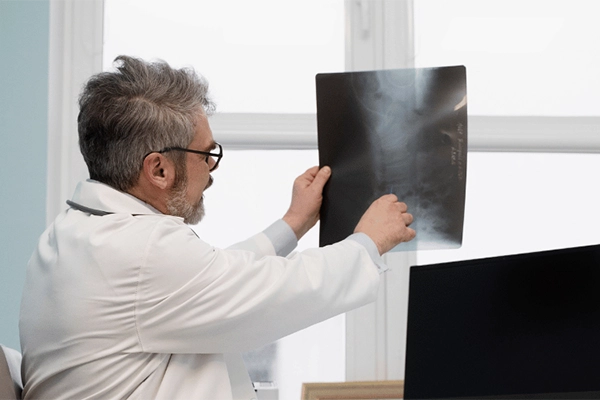Topics
Shingles, or herpes zoster, is a viral infection caused by the reactivation of the varicella-zoster virus, the virus that also causes chickenpox. Adults who have had chickenpox are at risk for shingles because the virus remains in their body, dormant in the nervous system. When the immune system is weakened, the virus can reactivate and cause a painful rash on the skin.
Shingles itself is not contagious, meaning you cannot catch shingles from another person. However, if you have not had chickenpox, direct contact with the fluid from a shingles rash can transmit the chickenpox virus to you.
What Are the Symptoms of Shingles?
Symptoms of shingles can vary but usually begin with pain or a burning sensation on one side of the body or face. Some of the most common symptoms include:
- Rash: The main symptom of shingles is a rash that develops into itchy blisters. This rash usually appears on the side of the body or face in a single stripe.
- Pain: Many people experience pain, tingling, or itching in the affected area. This pain can be very severe, especially in older adults.
- Other symptoms: Some patients may experience fever, headache, and fatigue.
Why Does the Varicella-Zoster Virus Reactivate?
The varicella-zoster virus remains dormant in the body after a person recovers from chickenpox. At some point in life, usually in adulthood or old age, this virus can be reactivated, especially when the immune system becomes weak due to ageing, illness, or the use of certain medications.
What Are the Complications of Shingles?
Shingles usually heals on its own within a few weeks. However, if left untreated, shingles can cause serious complications, especially in older adults.
- Postherpetic Neuralgia (PHN): One of the most common complications is postherpetic neuralgia, a condition where pain in the area affected by shingles persists for months or even years after the rash has healed.
- Skin infection: Shingles can become infected by bacteria if not treated properly, which can worsen the condition and require antibiotics.
Vision problems: If shingles develops around the eyes, it can cause damage to the optic nerve and can even lead to blindness if not treated.
How to Prevent Shingles?
Preventing shingles primarily involves boosting the immune response against the varicella-zoster virus (VZV) and minimising the chances of reactivation.
- Vaccination: Shingles vaccine is available and recommended for adults aged 50 years and over to reduce the risk of developing shingles and the stage of illness if someone is infected.
- Strengthen the immune system: Maintaining a healthy lifestyle, including eating nutritious foods, getting enough sleep, and reducing stress, can help strengthen the immune system and prevent viral reactivation.
- Avoid close contact: Avoiding close contact with those who have active chickenpox or shingles is recommended.
FAQs: Frequently Asked Questions
-
Is shingles contagious?
Shingles is not contagious, but the varicella-zoster virus can be contagious and cause chickenpox in people who have never had it.
-
Who is at risk of shingles?
Adults who have had chickenpox or have a weakened immune system are more at risk of shingles.
-
When should I consult a doctor?
If you experience a painful rash or shingles-like symptoms, consult a doctor immediately.
Make an Appointment at Pantai Hospitals
Shingles is a serious viral infection but can be treated effectively if detected early. If left untreated, it can cause life-threatening complications. If you have ever had chicken pox or are at high risk because your immune system is weakened, it is important to remain vigilant and seek immediate medical attention at the first signs of symptoms. Early diagnosis and treatment can prevent severe complications and ensure a quick recovery.
For further information regarding shingles, get in touch with us to book an appointment today for a consultation. To make an appointment for health screening, please contact the health screening centre at the Pantai Hospital nearest to you.
Pantai Hospitals have been accredited by the Malaysian Society for Quality in Health (MSQH) for its commitment to patient safety and service quality.












